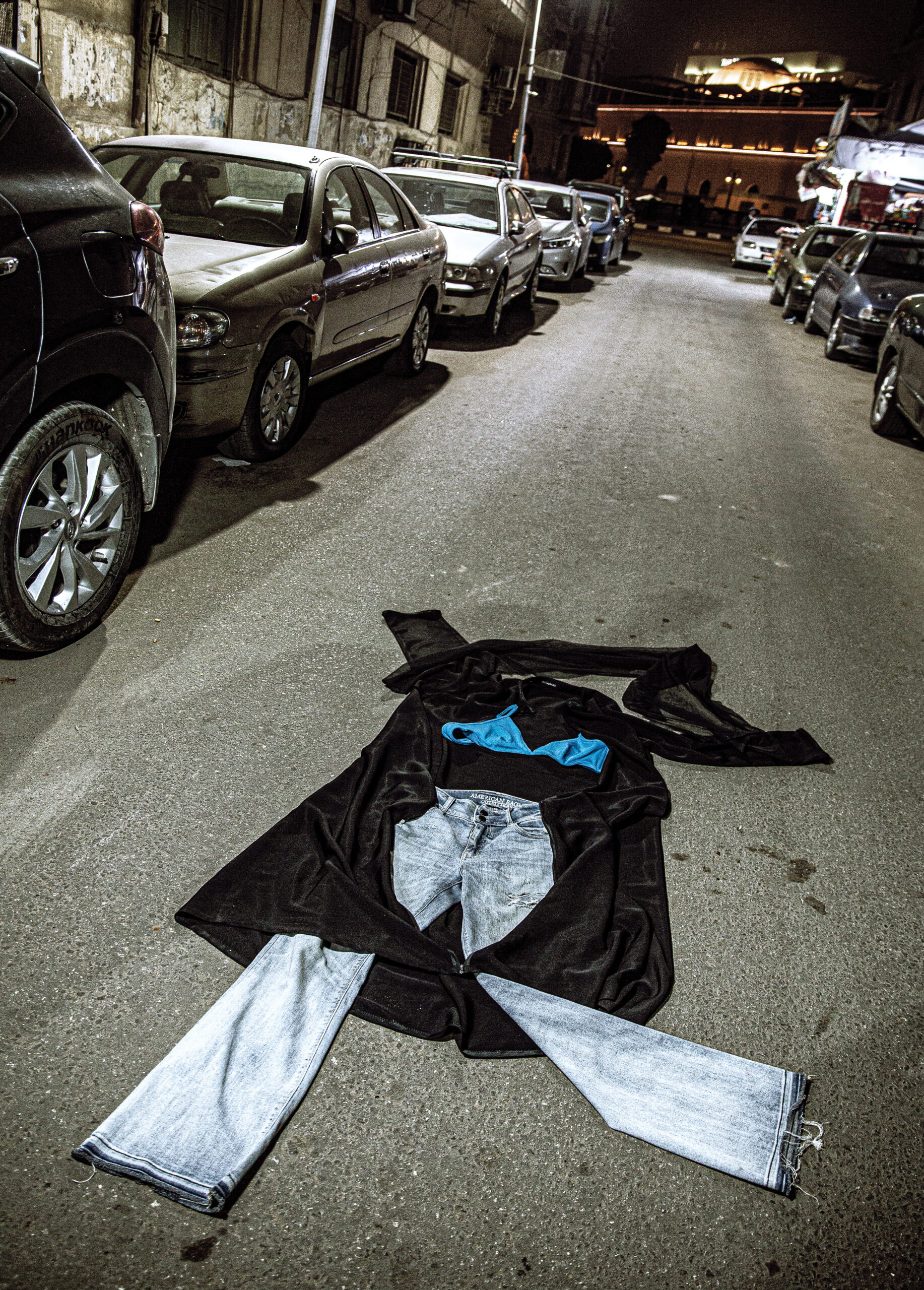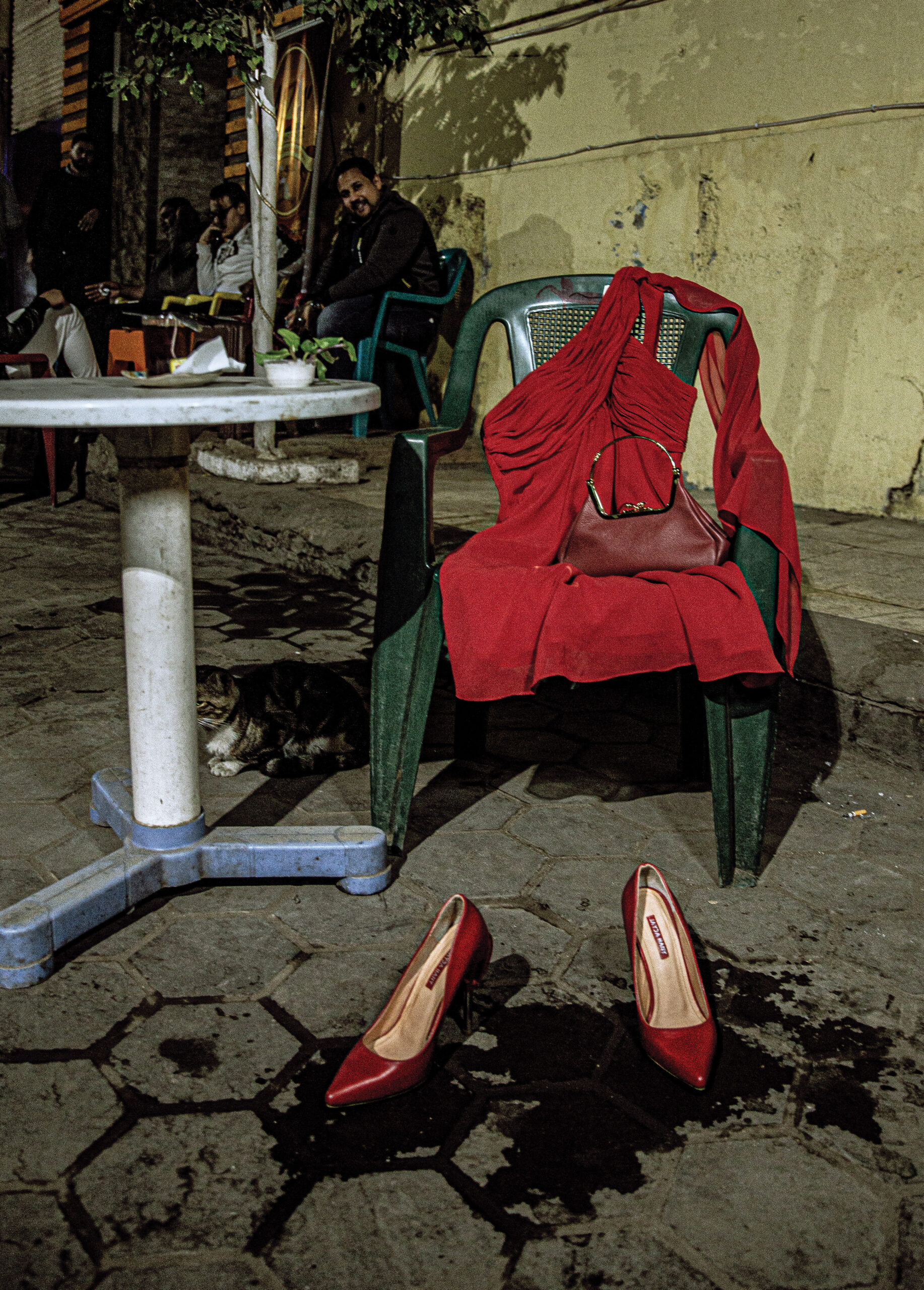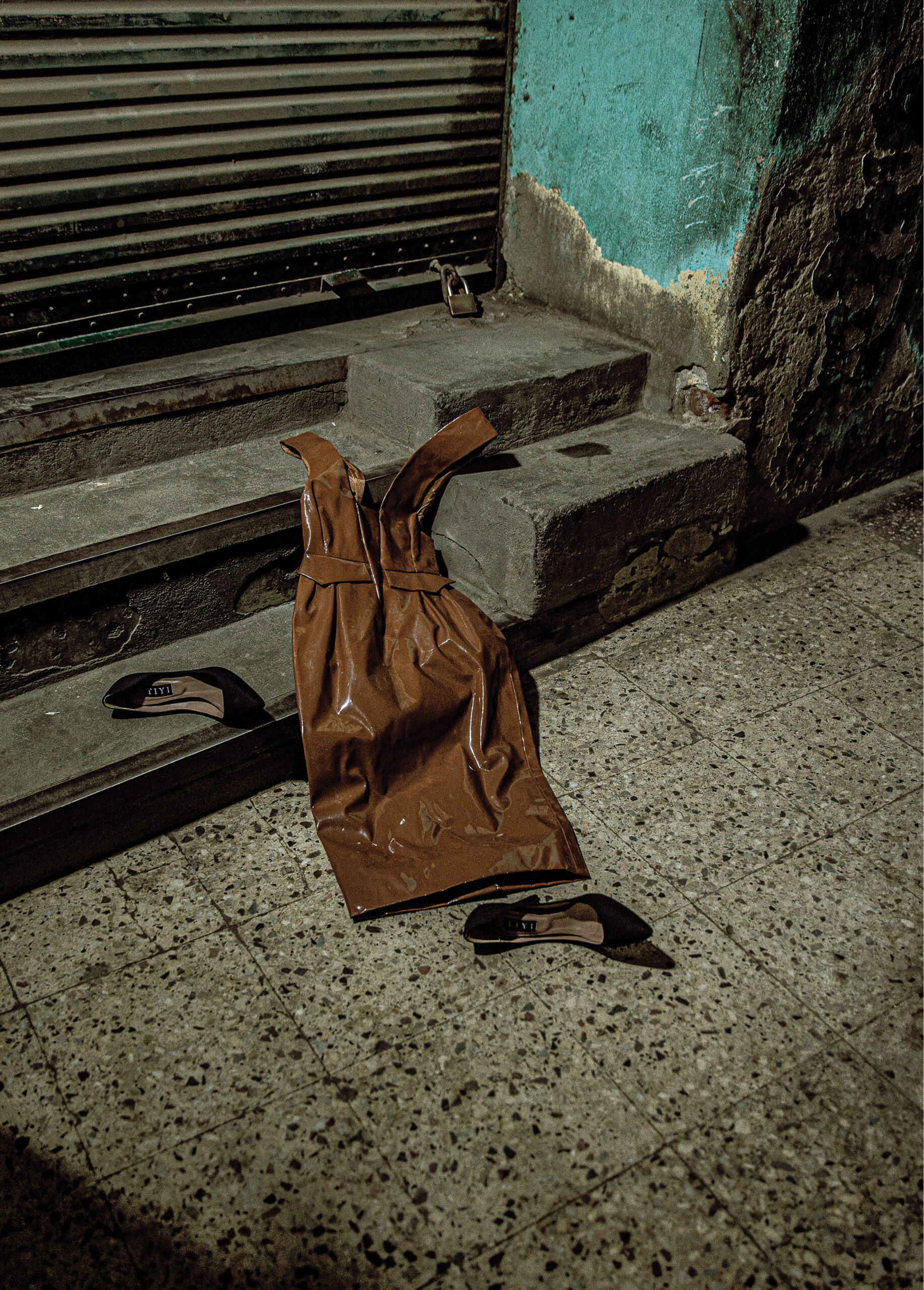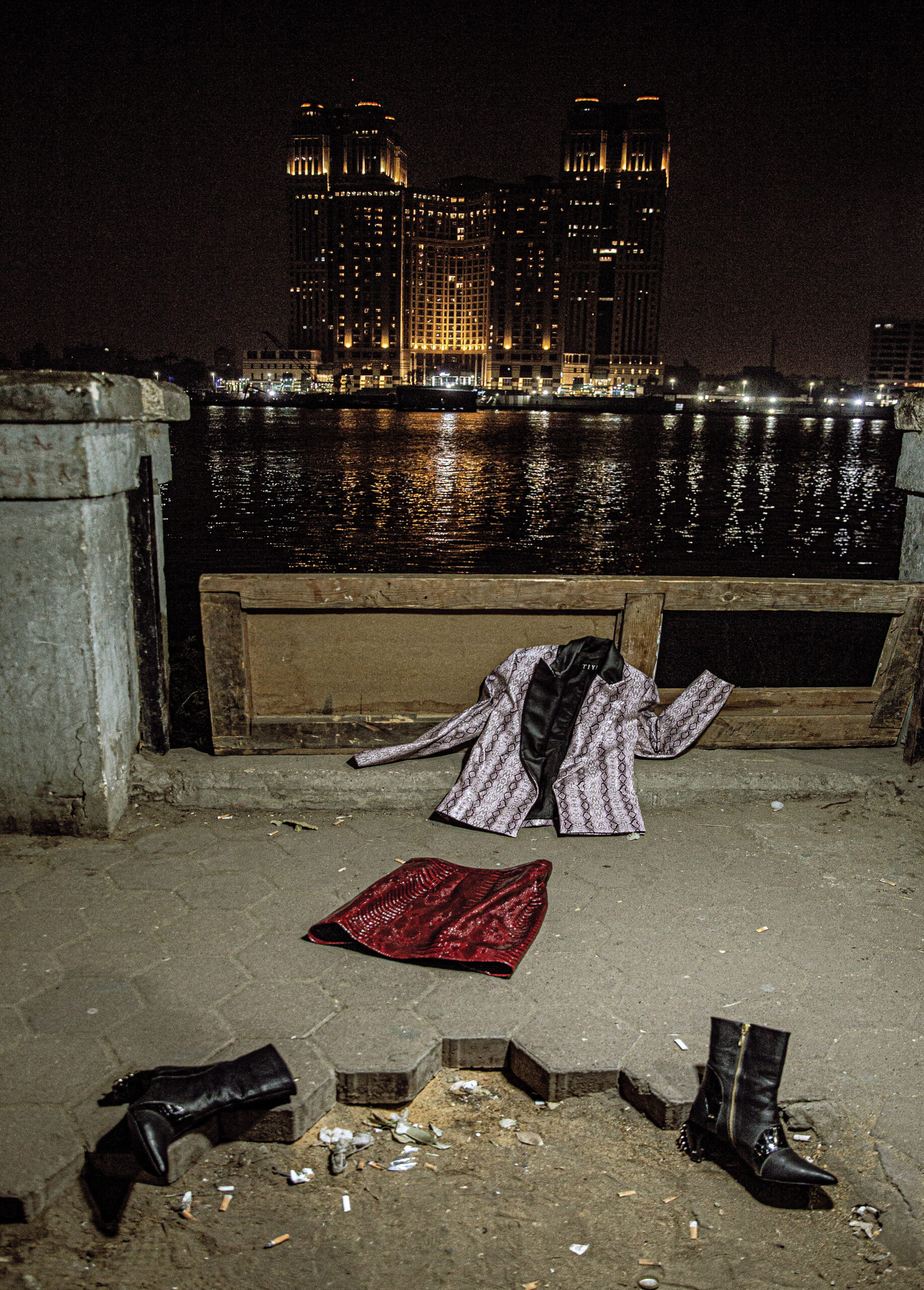Words by S.A.
A NOTE FROM CAIRO
Photography by M.S.
Styled by A.S.
Translated from English by K.Y.
Words by S.A.
Photography by M.S.
Styled by A.S.
Translated from English by K.Y.

Some weeks ago, I came across a Facebook post about journalist Soulafa Magdy, a political prisoner who was just recently released from months in remand detention. The post relayed a complaint by her family because Soulafa, while in custody, was stripped of her clothes, dragged naked across a cell floor and beaten so hard that she started bleeding from her vagina and was left without any medical care. The image of this incident passing on my timeline did not leave me for days. It made me fall silent through dinners, romantic conversations, car rides, and in the safety of my own home—which happens to be next door to a police station.


I believe that most women around me have also normalized that this is what crowds our minds: the pervasiveness of sexual violence on every plane, from the public to the private, in our context makes the task of writing an overview on the subject matter extremely complicated.
I decided against presenting the ‘factsandfigures’ because the topic has warranted a special tab on the Mada Masr website titled “sexual assault”[1] for readers to browse through for journalistic accounts. I find myself more concerned with how we navigate the scale of a conversation that has become so overwhelmingly public with no safeguards for our personal, political or emotional lives. Every form of space has produced documented and broadcast incidents of brutal sexual violence, from luxury hotels to summer houses, clinics, on the street, in protests, and most consistently in the custody of the state. And it has become such an unbearable necessity to stay active, alert, engaged, angry, articulate, patient, consistent and principled every day, all at once. I sit down on a beach for breakfast, with blue water in view, and a man who puts his bag next to me is one of five accused gang rapists who were all just released due to insufficient evidence in the highest profile case to have come out of the last two years. Meanwhile, friends spent months in custody as witnesses to that case, neutral bystanders found themselves arbitrarily implicated in a fishnet that reaches far beyond the concerned parties to serve a larger political and moral rhetoric. [2] A queer man is accused of harassment, and calling him out on social media sends panic through an entire community in fear of violence from the state. We are overwhelmed. How are we to claim any success or any sense of satisfaction over a conviction for sexual assault when the state that metes out this justice is itself the single largest perpetrator of systematic sexual violence? And this patronizing duplicity makes us tread with so much fear and anxiety towards calling out for justice, while also questioning what form of justice we’re calling out for.
We’re learning that we have some power but only if we stay within the lane of the heteronormative grieving female asking to be aided and avenged by the powers that be. But other women, identities, sexualities and political orientations are dissenting bodies, that within this rubric, become deserving of sexual violence in the eyes, and at the hands, of the state.
The state that is manifest in police, invasive architecture, homophobic checkpoints, gentrification plans, sexist judicial literature and a general rhetoric of false prosperity, is ushering a new age.


A new capital is being built in the middle of a desert, gated along with whole communities. An entirely new infrastructure is being dug into place with roads cutting through the old city to make sure the new one is well connected. I get calls every other day asking if I would like to put in a deposit on an apartment in the New Administrative Capital. Expanding into arid territory and the erection of new icons means more centralized capital and the normalization of danger in the old city as marketing for the new; a utopia can only be sold on the dereliction, the rottenness of its counterpart. The link between precarity, sexual violence and a fast expanding urban setting is well established, although it is cities of the global south for which this connection is most loudly proclaimed. Sexual violence as third world condition, then, is a brand the neoliberal finance state is trying hard to dissociate from internationally. So while attempting to sharpen its mechanisms for carceral justice and capital punishment as deterrents for (certain) sexual violators and violations, it is simultaneously reproducing the conditions of and opportunities for wider deployment of violence (de facto gendered). The capital boasts new schools, universities and clubs, as well as a great big wall encircling and holding it all in. Who is expected to move there and what is going to be left behind? Where does that leave the masses that you now perceive as belonging to the old? What kind of divide is this spatial shift going to further create within a conversation already riddled with class and gender difference? State monuments, ministries, police personnel—packing up and leaving means infrastructure and resources spread thin. So what kind of futurity can we project from a state denouncing its city? This form of abandonment may offer a sliver of emancipation from overbearing agents of structural violence. It can also mean that as an ever more ruthless urge develops to protect this legacy in the making, we’re left behind to be tamed by the worst of them.
[1] https://mada31.appspot.com/www.madamasr.com/en/topic/sexual-assault/
[2] https://mada31.appspot.com/www.madamasr.com/en/2020/09/03/feature/politics/friend-of-witness-in-fairmont-case-swept-up-in-backlash-arrests-ordered-detained/